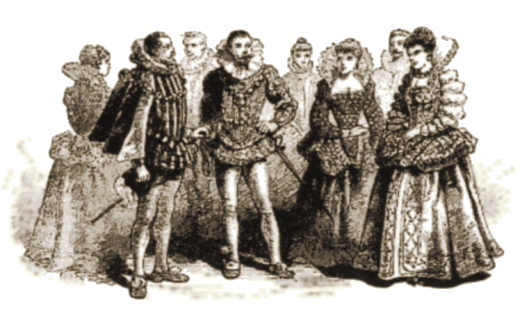There was a significant new opinion released in the NDCA late Friday in the case of Jose Padilla v. John Yoo. The decision is devastating to Yoo and to the thought by the Obama Administration that the American legal system is going to blithely allow them to simply "move forward" and leave behind, and out of sight, the malevolence, malfeasance and depravity of senior Bush/Cheney legal officials in relation to their torture regime…
Yoo might be having a bad day when a Federal judge starts his analysis of your immunity claim by citing Alexander Hamilton from the Federalist Papers. And that is exactly what Judge Jeffrey S. White of NDCA District Court has done:
[War] will compel nations the most attached to liberty to resort for repose and security to institutions which have a tendency to destroy their civil and political rights. To be more safe, they at length become willing to run the risk of being less free. [The Federalist No. 8, at 44 (Alexander Hamilton) (E.H. Scott ed., 1898).]In the third and last major section of the opinion (starting on page 29), Judge White specifically dissects Yoo’s bleating qualified immunity assertion.
Yoo also argues that he is entitled to qualified immunity on all claims. The doctrine of qualified immunity protects government officials “from liability for civil damages insofar as their conduct does not violate any clearly established statutory or constitutional rights of which a reasonable person would have known.” Harlow v. Fitzgerald, 457 U.S. 800, 818 [1982]. “Qualified immunity balances two important interests – the need to hold public officials accountable when they exercise power irresponsibly and the need to shield officials from harassment, distraction, and liability when they perform their duties reasonably.” Pearson v. Callahan, 129 S. Ct. 808, 815 [2009].The last part – "when they perform their duties reasonably" – is the key here. As you might guess, Mr. Padilla does not think that John Yoo performed his duties reasonably [neither do I]. This has always been the threshold that the blithering idiot main stream media keeps spewing cannot be reached. Guess what, Judge White is a little more sanguine and thinks reasonable people could find that John Yoo was unreasonable. The court described the standard applicable to consideration:
A court should then address the question “whether, under that clearly established law, a reasonable [official] could have believed the conduct was lawful.” Id. This inquiry must be undertaken in the light of the specific context of the case. Saucier, 533 U.S. at 194. In deciding whether the plaintiff’s rights were clearly established, “[t]he proper inquiry focuses on whether ‘it would be clear to a reasonable officer that his conduct was unlawful in the situation he confronted’ … or whether the state of the law [at the time] gave ‘fair warning’ to the officials that their conduct was unconstitutional.” Clement v. Gomez, 298 F.3d 898, 906 (9th Cir. 2002) (quoting Saucier, 533 U.S. at 202).At this point, it should be noted that the court here is not finding that Yoo’s conduct violated Padilla’s rights as alleged in the amended complaint, only that Padilla has stated a sufficient cause of action that may be responded to and on which the case may proceed forward with discovery and determination on the merits. But the words and discussion in the decision leave little doubt that the court believes there are solid cognizable claims against Yoo:
Indeed the “requisite causal connection can be established not only by some kind of direct personal participation in the deprivation, but also by setting in motion a series of acts by others which the actor knows or reasonably should know would cause others to inflict the constitutional injury.” Johnson, 588 F.2d at 743-44; see also Kwai, 373 F.3d at 966 (same). Like any other government official, government lawyers are responsible for the foreseeable consequences of their conduct.There you have it, governmental lawyers like Yoo, Bradbury, and Gonzales can be held liable for the foreseeable consequences of unprofessional work. This language must be doubly disturbing to Yoo et. al coming right before the imminent release of the reportedly scathing OPR Report…
All in all, it is a fantastic decision, once again the Federal judges in the 9th Circuit and NDCA come riding to rescue of the United States Constitution when our Federal government and legislature will not. It is a reminder of the simple beauty of the balance and separation of powers the Framers left us, and the importance that each branch passionately protect all citizens’ rights. Maybe someday Barack Obama will get his finger out of the political winds and stop protecting and excusing the gross malfeasance of the authoritarian state and protect the Constitution instead. Hope springs eternal.
Here, the judge is breaking the mystical "immunity" that the Bush Administration saw as flowing from the Supreme Commander bathing his lackeys and comrades in arms in the freedom to do his bidding with no personal accountability. It breaks the absurd cycle between Yoo and Bush/Cheney. John Yoo declares that the President is Supreme in all things. The President’s Supreme-ness makes Yoo immune by proxy. The judge calls "bullshit!" John Yoo is responsible for what he said. If he wasn’t accountable, he shouldn’t have been in a position to make decisions.

Sorry, the comment form is closed at this time.